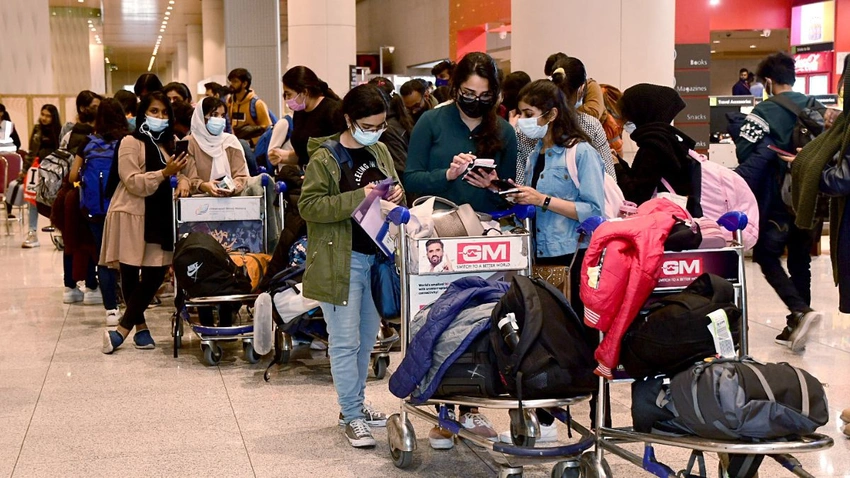Over 100,000 Indian youths in the United States are confronting an uncertain future as they approach their 21st birthdays. These individuals, who arrived as minors under their parents' H-1B visas, currently hold H-4 dependent visas. However, upon turning 21, they 'age out' of this status, rendering them ineligible to remain as dependents. This predicament has led to fears of 'self-deportation' to India, a country many scarcely remember.

Historically, U.S. immigration policy provided a two-year grace period for these young adults to transition to a new visa status after aging out. However, recent legal developments have cast doubt on the continuation of this provision. A notable example is a recent court ruling in Texas that blocks work permits for new applicants under the Deferred Action for Childhood Arrivals (DACA) program. DACA has traditionally offered temporary, renewable two-year protection from deportation to undocumented immigrants who arrived in the U.S. as children, including those on dependent visas. The ruling has intensified concerns among Indian youths about their future in the country.
The massive backlog in the U.S. employment-based green card system exacerbates this issue. According to data from March 2023, nearly 134,000 Indian children were expected to age out of dependent visa status before their families obtained green cards.
This backlog, coupled with the recent DACA ruling, has left many young immigrants with limited options.
Transitioning to an F-1 student visa is a potential pathway for some. However, this route presents significant challenges. H-4 visa holders who switch to F-1 status are classified as international students, making them ineligible for in-state tuition, federal financial aid, and certain scholarships. This reclassification imposes a substantial financial burden on families already grappling with the high cost of living in the U.S.

For instance, a 20-year-old nursing student from California, whose dependent visa expires in August, expressed her concerns: "I have lived here since I was six. My education, friends, and my future, everything is here. But now, I am being told that I might have to leave the only country I have ever known." She added that converting to an F-1 visa would impose a "huge financial burden on our families, many of whom are already struggling with the high cost of living in the U.S."
Facing these challenges, some are considering relocating to countries like Canada or the UK, where immigration policies are perceived as more inclusive. A Memphis-based undergraduate student, who will turn 21 in April, shared his dilemma: "It might be an easier option. Even if I stay and study here, I don't know what my prospects are of getting a job and securing my future. My parents are planning to return to India after retirement, so I have nothing to stay back for." He further noted, "I can't see myself moving back to India as it seems like just another foreign land to me. I left when I was a child. I would have to start afresh."
The uncertainty surrounding their status has profound psychological and emotional impacts. Many of these young individuals have spent the majority of their lives in the U.S., assimilating into American culture and society. The prospect of relocating to a country they scarcely know is daunting. Moreover, the financial implications of transitioning to an international student status are significant. For example, a student from Texas highlighted the disparity in tuition fees: "I can't afford out-of-state tuition and can't work off-campus to support myself. It feels as though I am being punished for something I had no control over. I will have to pay fees as high as $45,000 compared to $10,000 that my friends here pay."
The broader implications of this issue extend beyond the affected individuals and their families. The U.S. risks losing a generation of young, educated individuals who have been raised and trained within its borders. Their potential departure could result in a loss of talent and diversity that enriches American society. Furthermore, the emotional and social costs of uprooting these individuals from the only home they've known are immeasurable.
The confluence of aging out of H-4 dependent status, legal challenges to programs like DACA, and the financial burdens associated with alternative visa options has left many at a crossroads. Addressing this issue requires comprehensive immigration reform that considers the unique challenges faced by these documented dreamers, ensuring that the U.S. continues to benefit from their contributions while upholding its values of fairness and opportunity.
#Immigration #YouthIssues #H4Visa #IndianCommunity #VisaChallenges











You're essentially forced to leave your home country before you've even figured out who you are! 100k Indians are doing this at 21, what's going on?